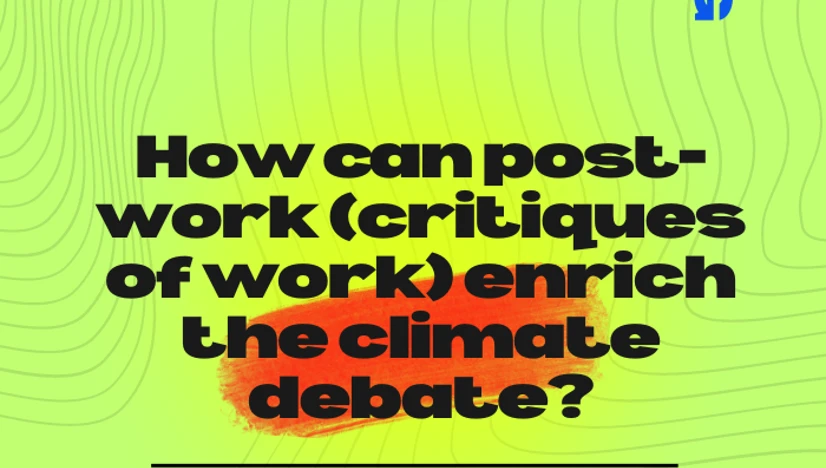How can post-work (critiques of work) enrich the climate debate?
Economists for Future, 2024
"In the debate about a sustainable and livable future, the critique of work is an essential perspective. Work is always on resource and energy consumption, it always has direct or indirect environmental impacts. As André Gorz summed it up, “For modern industrial society, work is both its chief means and its ultimate goal”. From this constellation—the environmentally harmful effects of work on the one hand and the systemic compulsions to work on the other—arises the conflict between work and the environment, which will remain a central sustainability problem as long as it is not directly addressed. This contribution by Maja Hoffmann, published by Economists for Futre, explores this tension."
Comment from our editors:
While debates about reducing working hours have recently gained popularity, the concept of post-work goes a step further. Rather than simply reducing the number of hours worked per week while maintaining or increasing productivity, post-work questions the centrality of work and productivity altogether. In this essay, Maja Hoffmann explains why a critique of work is essential when addressing ecological crises and why we need to change the way we think about work. This essay can be recommended to anyone who is already interested in the debate around the reduction of working hours and the link between work and socio-ecological crises, or to anyone looking for a scientific excuse to sleep more.
Go to: How can post-work (critiques of work) enrich the climate debate?

